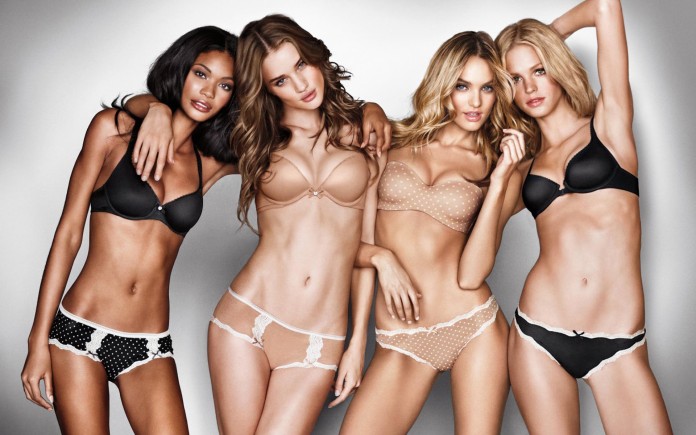As I stare at her almost naked body perfectly centered on the LED lit panel of the bus stop, the words of my mother play on loop inside my head: “as long as you’re healthy darling.”
Now my mother’s definition of healthy is based purely on blood levels and the absence of any kind of debilitating disease or any predisposition to it; the same definition used by health professionals and textbooks for years. For a woman in the modern era, however, this is no longer case.
Today’s definition of health seems to evolve and shift almost daily to remain relevant and as though to taunt us, readily manifests itself into the workings of each and every “thought group” on the issue of female representation and body image.
On one hand, we have the contemporary health enthusiast who, while eating as much as the rest of us, manages to maintain her health due to what she claims to be the type of diet she follows and the amount and quality of exercise she performs in a bid to maintain health long term. At the other extreme, we have the highly non-restrictive woman who defines health as the absence of disease at the present time while attributing any future disease development to chance. Both groups seem to believe that their definitions of health are irrefutable while “body shaming” the other.
This simplistic view of the situation, however, is yet to take into account the varying schools of thought on the amount of exercise required to maintain one’s state of health and the extent to which the restriction of diet is beneficial at all, if not counterproductive. In a nutshell, women in this day and age are not only pressured to look a certain way, but are pressured by very many different groups as to what that way is and what in fact, is the best way to achieve it.
The result? A woman who is not only confused about the state of her well-being, but who is conned into pursuing the industry trends of the day due to their new-found linkage to her long-term physical health. Yet what is even more alarming than the state of uncertainty into which we are pushed by the varying sources of health information available to us, is the fact that we are still entertaining thought processes that place us moulds that are labeled “perfect woman” years on from the time in which they were seen as openly acceptable while treating them as mantras that will lead us to the perfect physical condition.
At a time when medicine is moving towards personalized treatments for both present disease and individual disease risk, it seems almost ludicrous that the search for a one size fits all health models to begin with let alone arguing about which model is the one we all must choose. For the majority of us, whatever it is that the lingerie model on the bus stop has been doing to achieve her figure probably will never work, not because we are defective in some sort of way but as a byproduct of the nature of individuality, both physically and mentally.
So as I glance over her one more time, motionless as the bus arrives, I realize that perhaps in a bid to define the physical, we have ignored the fundamental basis of any health at all; the interaction that exists between mental and physical well-being as opposed to just our mental well-being.

![5 Reasons You Should Travel Alone Airplane [image source: chau nguyen/ http://thedevilhatessweatpants.blogspot.com.au ], crowd ink, crowdink, crowdink.com, crowdink.com.au](https://crowdink.com/wp-content/uploads/2016/08/Chau-airplane-218x150.jpg)




























![5 Reasons You Should Travel Alone Airplane [image source: chau nguyen/ http://thedevilhatessweatpants.blogspot.com.au ], crowd ink, crowdink, crowdink.com, crowdink.com.au](https://crowdink.com/wp-content/uploads/2016/08/Chau-airplane-100x70.jpg)


